Russia Ukraine war updates: Zelensky’s fury over Ukraine terror
Russia’s defence ministry said that Moscow had again fired its newest Kinzhal (Dagger) hypersonic missile, the second time it has been used.
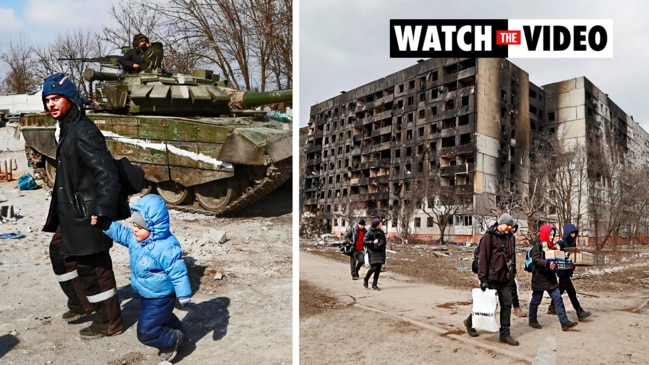
Russia’s defence ministry said overnight that Moscow had again fired its newest Kinzhal (Dagger) hypersonic missile, destroying a fuel storage site in the southern Mykolaiv region.
If confirmed, the strike would mark the second time Russia had used the sophisticated weapon in combat, a day after it said it used it to destroy an underground missile and ammunition storage site in western Ukraine close to the border with NATO member Romania.
Rescue workers are still searching for survivors at the militarty base where around 40 Ukrainians died
Mykolaiv’s governor said those killed were asleep when the attack occured.
It comes as Russia’s initial military campaign in Ukraine has been “defeated”, and the war is now entering a “dangerous” new phase, in the form of a “violent and bloody” stalemate.
That is the assessment of experts from the Institute for the Study of War, a US-based thinktank. They believe the likelihood of Russia meeting the objectives of its invasion is now “very unlikely”.
Russia appears to have abandoned its plans to attack Odesa and encircle Kyiv. Instead, it is now moving to “set the conditions for an expanded artillery and missile bombardment” of the Ukrainian capital.
In Mariupol, the besieged city continues to be one of the main targets of Moscow’s attacks. Russian shelling has hammered the eastern Ukrainian port for days, and the city has seen a near total communication blackout.
Stream the latest on the invasion of Ukraine from the world’s most trusted news sources with Flash. 25+ news channels in 1 place. New to Flash? Try 1 month free. Offer ends October 31, 2022 >
Read on for the latest updates.
Hypersonic weapons
Russia says for a second day in a row it has fired its newest hypersonic missiles in Ukraine, destroying a fuel storage site in the country’s south.
Hypersonic missiles travel faster than the speed of sound and can manoeuvre mid-flight, making them hard to track and intercept.
Russia’s defence ministry says it used the technology to destroy a large storage site for fuels and lubricants for the Ukrainian armed forces near Kostyantynivka in the Mykolaiv region.
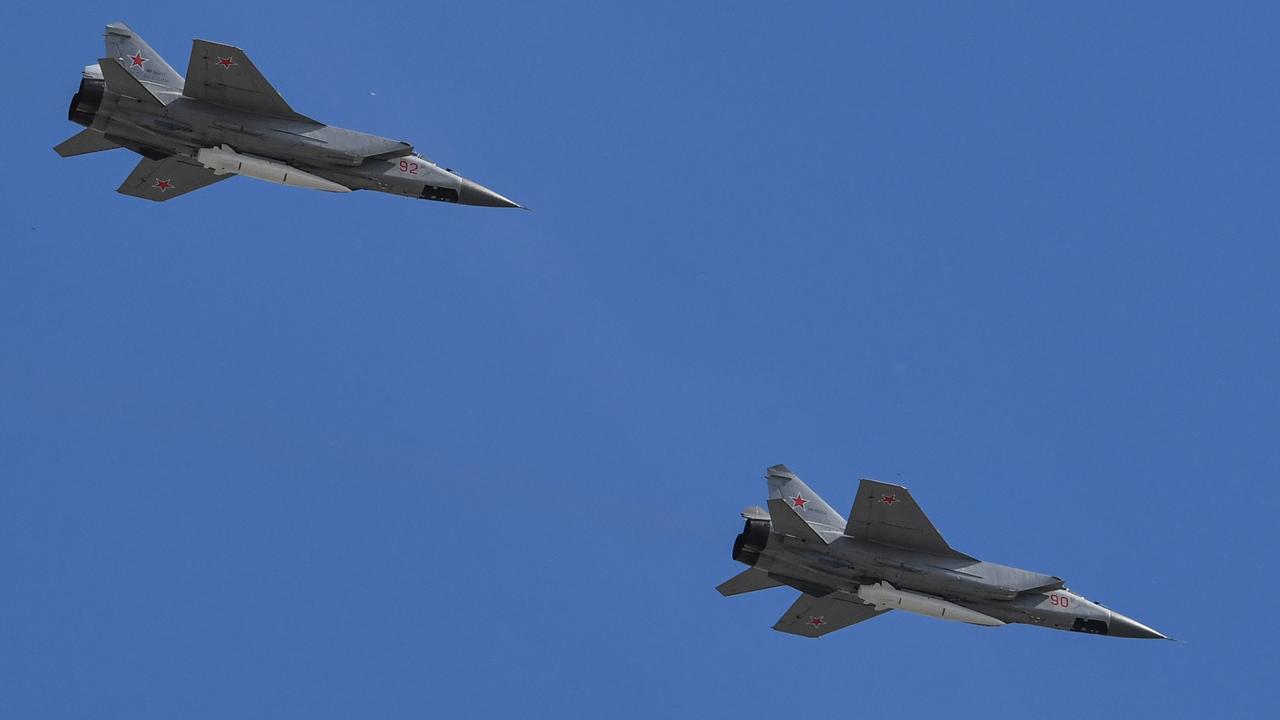
‘Unified policy’: Ukraine’s next big move
Ukrainian President Volodymyr Zelenskyy has said all national TV channels must go into one platform, citing the importance of a “unified information policy” under martial law.
Ukrainian privately-owned media channels have continued to operate since the start of the Russian invasion of Ukraine on February 24.
The announcement, made on on Sunday on the presidential website, did not specify how quickly the new measure would come into force.
Russia accused of bombing school sheltering hundreds
Ukrainian authorities say that Russia had bombed a school sheltering 400 people in Mariupol.
“Yesterday, the Russian occupiers dropped bombs on an art school No 12,” the Mariupol city council said on messaging app Telegram on Sunday, adding that around 400 women, children and elderly people had been sheltering there from bombardments.
“Peaceful civilians are still under the rubble,” it said, adding that the building had been destroyed.
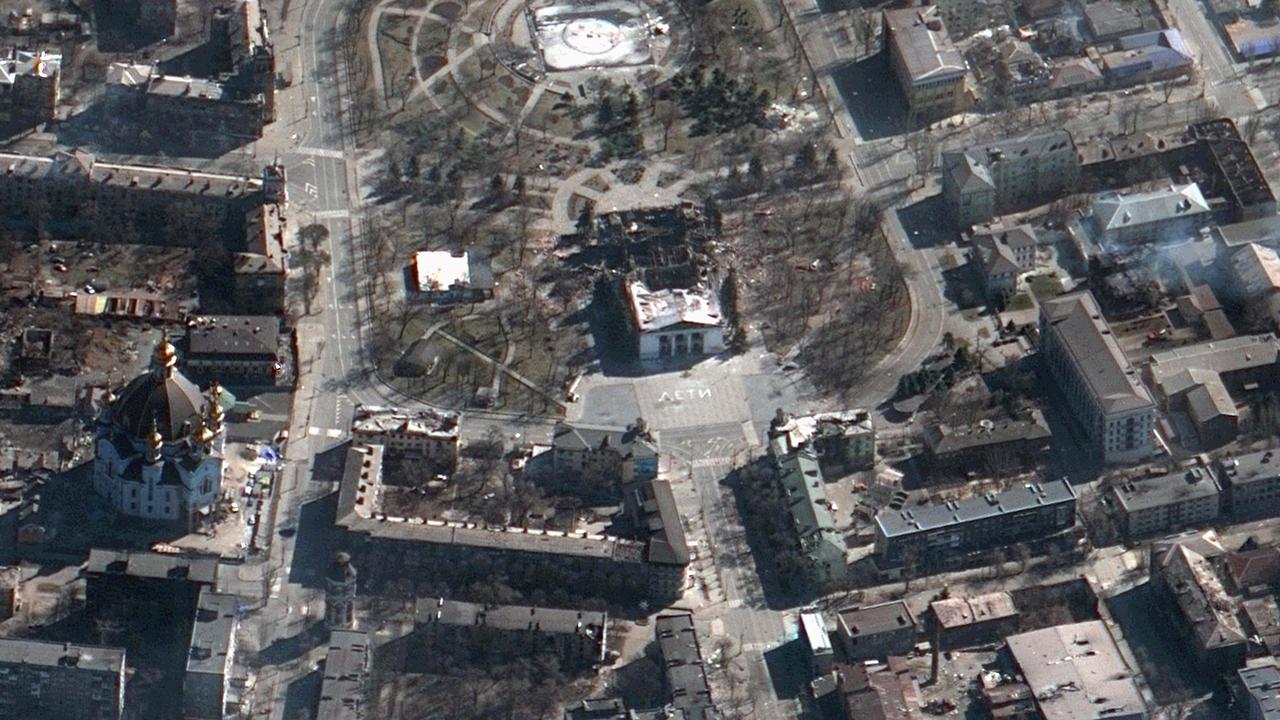
Waging ‘terror’ in Mariupol
Ukraine President Volodymyr Zelensky has said the siege of Mariupol would go down in history as a war crime.
The port of Mariupol has been one of the worst cities hit, as it occupies a strategic position -- its capture would link the Crimean peninsula, which Russia seized from Ukraine in 2014, with the separatist eastern regions of Donetsk and Lugansk, which broke away the same year and are controlled by Moscow-backed rebels.
Thousands of civilians are thought to be trapped inside the city, where communication, water, electricity and gas have been cut. Russia said on Saturday it had broken through the city’s defences and its troops were inside.
“The blockade of Mariupol will go down in history as a ware crime,” President Zelensky said.
“To do such a thing to a peaceful city, what the occupiers have done, this is a terror that will be remembered even in the next century.
Last Wednesday, a theatre where more than 1,000 people had sheltered was hit, with hundreds still presumed missing in the rubble.
“The more Russia uses terror against Ukraine, the worse the consequences will be for it.”
“This is no longer Mariupol, it’s hell,” said resident Tamara Kavunenko, 58.
“The streets are full with the bodies of civilians.”
Meanwhile, Zelensky said Russia’s military isn’t recovering the bodies of its soldiers in some locations.
“In places where there were especially fierce battles, the bodies of Russian soldiers simply pile up along our line of defense. And no one is collecting these bodies,” he said.
He told Ukraine citizens that peace talks with Russia were not simple but were “necessary”.
“Ukraine has always sought a peaceful solution. Moreover, we are interested in peace now.”
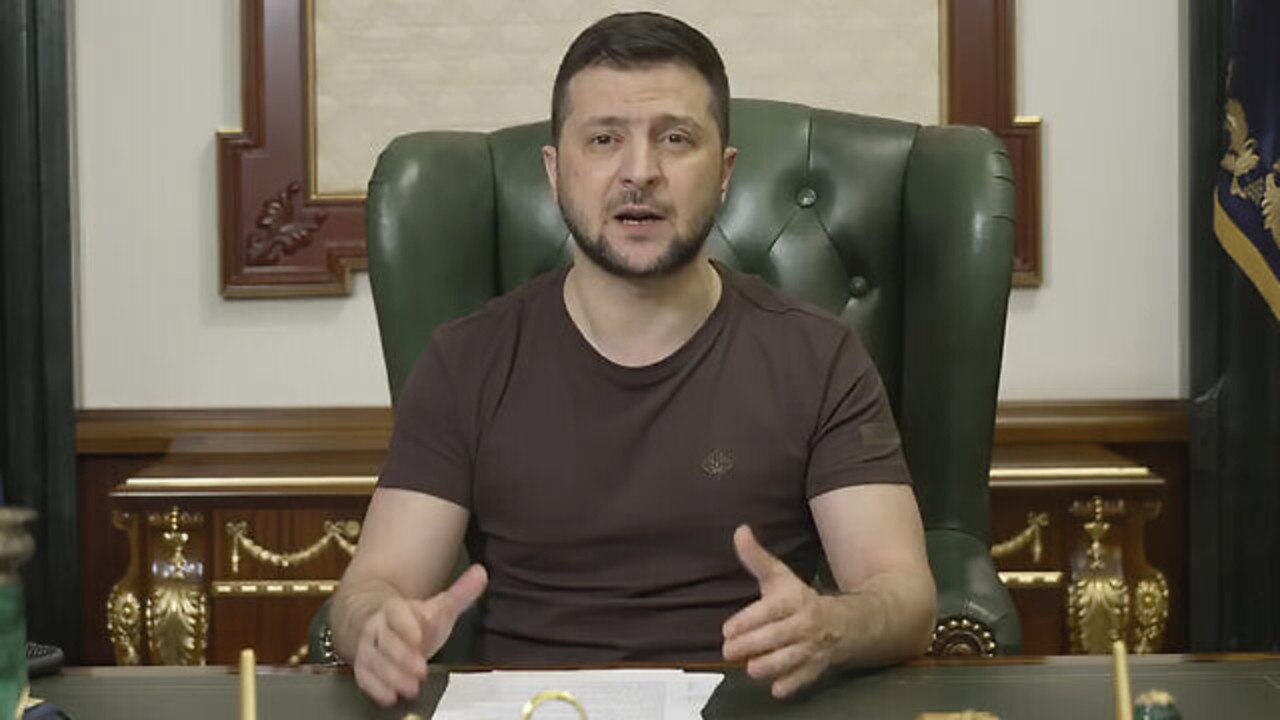
Mariupol residents taken back to Russia
Ukrainian officials in Mariupol have accused Russia of forcibly taking thousands of the city’s residents across the border.
The New York Times reports that a staffer for the city’s mayor, Pyotr Andryuschenko, said “between 4000 and 4500 Mariupol residents” had been taken to Taganrog, a city in southwest Russia, without their passports.
“Several thousand Mariupol residents were deported to Russia,” the Mariupol city council said today, according to Euromaiden Press.
“The occupiers illegally removed people from the Left Bank district and shelters in the building of the sports club, where more than a thousand people (mostly women and children) were hiding from the constant bombing.”
The council alleged these people were taken to “filtration camps” and subsequently “redirected to remote cities in Russia”.
Russia’s version of this is that thousands of people in Ukraine “expressed their desire to escape to the Russian Federation”, which is implausible to say the least.
Hypersonic missile fired for second time
Russia’s defence ministry said that Moscow had again fired its newest Kinzhal (Dagger) hypersonic missile, destroying a fuel storage site in the southern Mykolaiv region.
The strike came a day after it said it used the sophisticated weapon for the first time in combat to destroy an underground missile and ammunition storage site in western Ukraine close to the border with NATO member Romania.
Australia announces aid, sanctions
Australia announced more sanctions against Russia over the invasion of Ukraine on Sunday, immediately banning all exports of alumina and bauxite while pledging more weapons and humanitarian assistance.
The export ban aims to impact aluminium production in Russia, which relies on Australia for 20 percent of its alumina.
It comes just days after Canberra sanctioned oligarch Oleg Deripaska, who owns a stake in Queensland Alumina Limited - a joint venture between Russian aluminium company Rusal and mining giant Rio Tinto, which has vowed to sever all business ties with Russia.
A Rio Tinto spokesperson said the company “notes the government’s announcement today regarding export sanctions” and it was still in the process of “terminating all commercial relationships it has with any Russian business”.
Australian Prime Minister Scott Morrison said Sunday his government was working with partners to “put the maximum cost, the maximum pressure on the Putin regime to withdraw from Ukraine”.
Morrison said Australia had levelled 476 sanctions against Russian individuals and institutions since the invasion began.
He announced Australia would donate 70,000 tonnes of thermal coal to Ukraine, following a request from the besieged nation.
“We understand that it can power up to one million homes,” he said. In addition, Australia will increase its humanitarian assistance with an additional $30 million and will donate a further $21 million in defensive military assistance to Ukraine, including ammunition and body armour.
In recent weeks, the government has approved nearly 5000 visas from Ukrainians displaced by the conflict, Morrison added.
He announced that Ukrainian refugees would be eligible for a new three-year humanitarian visa, allowing them to work, study and access the country’s health system.
Russian ambassador: ‘We have plans against NATO’
A Russian diplomat said the country had “plans against NATO” during a TV interview today.
Igor Kalabukhov, Russia’s ambassador to Bosnia and Herzegovina, was interviewed by that country’s Face TV channel. He was asked about the prospect of it joining NATO.
“We will assess the strategic situation,” he said.
Mr Kalabukhov said Russia did “not mind” the idea of Bosnia and Herzegovina joining NATO. Asked why it didn’t care about the existing NATO countries in eastern Europe, he gave an ominous answer.
“How do you know that we have no plans against Croatia, Hungary, Poland?” he asked.
“We have plans against NATO. We are assessing the geostrategic situation, looking at where the threats are coming from and reacting.”
War entering ‘dangerous new period’
New analysis from the Institute for the Study of War, a US-based thinktank, says Ukraine has “defeated the initial Russian campaign of this war”.
“That campaign aimed to conduct airborne and mechanised operations to seize Kyiv, Kharkiv, Odesa and other major Ukrainian cities to force a change of government,” experts Frederick Kagan, George Barros and Kateryna Stepanenko write.
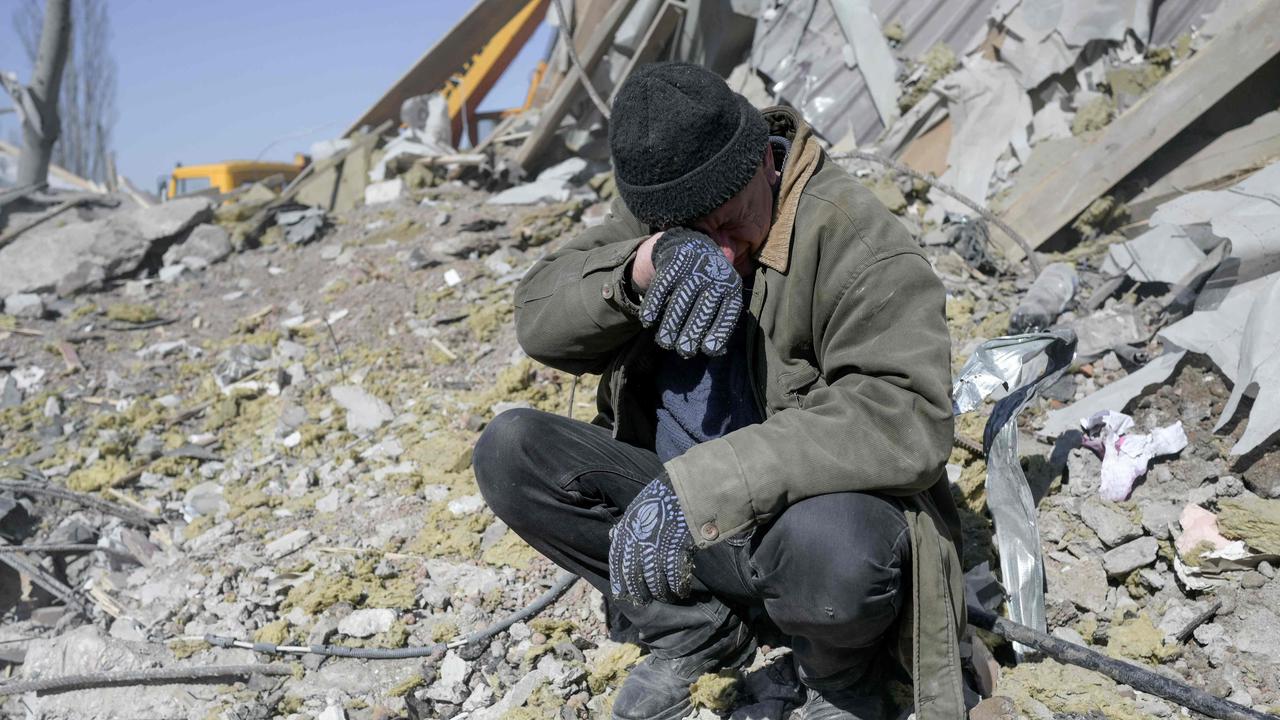
“That campaign has culminated. Russian forces continue to make limited advances in some parts of the theatre, but are very unlikely to be able to seize their objectives in this way.
“The doctrinally sound Russian response to this situation would be to end this campaign, accept a possibly lengthy operational pause, develop the plan for a new campaign, build up resources for that new campaign, and launch it when the resources and other conditions are ready. The Russian military has not yet adopted this approach.
“It is instead continuing to feed small collections of reinforcements into an ongoing effort to keep the current campaign alive. We assess that that effort will fail.”
Even the fall of Mariupol, a key focus of Russian forces in the south at the moment, would be “unlikely to free up enough Russian combat power” to have a large influence on the outcome of the initial campaign.
“Had the Russians taken Mariupol quickly or with relatively few losses, they would likely have been able to move enough combat power west towards Zaporizhiya and Dnipro to threaten those cities,” they say.
“The protracted siege of Mariupol is seriously weakening Russian forces on that axis, however ... the block-by-block fighting is costing the Russians time, initiative and combat power. If and when Mariupol ultimately falls, the Russian forces now besieging it may not be strong enough to change the course of the campaign dramatically by attacking to the west.”
Russia appears to have “abandoned” its plans to attack Odesa, and has “likely abandoned” its plan to encircle Kyiv. Instead, the Russians now intend to “set conditions for an expanded artillery and missile bombardment” of the capital.
Mariupol after many days of Russian shelling. #RussianWarCrimes
— Oleksandra Matviichuk (@avalaina) March 19, 2022
Video: The Guardian pic.twitter.com/k430nDGUAk
The upshot of all this is that the war is heading for a “very violent and bloody” stalemate.
“The culmination of the initial Russian campaign is creating conditions of stalemate throughout most of Ukraine,” say the ISW experts.
“Stalemate will likely be very violent and bloody, especially if it protracts. Stalemate is not armistice or ceasefire. It is a condition in war in which each side conducts offensive operations that do not fundamentally alter the situation. Those operations can be very damaging and cause enormous casualties.
“If the war in Ukraine settles into a stalemate condition, Russian forces will continue to bomb and bombard Ukrainian cities, devastating them and killing civilians, even as Ukrainian forces impose losses on Russian attackers and conduct counterattacks of their own.
“The Russians could hope to break Ukrainians’ will to continue fighting under such circumstances ... Ukraine’s defeat of the initial Russian campaign may therefore set conditions for a devastating protraction of the conflict and a dangerous new period testing the resolve of Ukraine and the West.”
‘Never held a gun’: Putin’s desperate move
Residents of Ukraine’s eastern regions, occupied by Russia, have claimed the invaders are forcing untrained civilians to take up arms and fight for them.
“These people have never even held a machine gun in their hands,” Oleksii, a 24-year-old resident of Khrestivka, told The Kyiv Independent.
He said nearly every man he knew had been illegally conscripted.
Another man from the area, Ivan, said pro-Russian militants had been going door-to-door “looking for men”. They were then sending the men on what they were calling a three to seven day “military exercise”, which turned out to be a deployment to fight Ukraine.
Anastasia, whose husband already left on such a deployment, told the Independent she hadn’t heard from him at all in five days. She said Russian forces had threatened to shoot men who did not comply.
“I still don’t know what happened to my husband,” she said.

The conscription of local civilians is the latest sign that Russia is suffering heavy casualties in the war, and turning to desperate measures to reinforce its invasion.
This week the United States estimated that more than 7000 Russian soldiers had been killed, a death toll greater than the US suffered across two decades in Iraq and Afghanistan.
Ukraine says it has killed double that number, though its casualty estimates have consistently been far higher than those from the US and UK. Russia claims its death toll is only in the hundreds, not the thousands.
Another ill sign for Russia: hospitals in Belarus, the nation immediately north of Ukraine which has been aiding the Russians, are reportedly “overflowing”.
The Sun has quoted a patient from a hospital in Homel.
“There are so many wounded Russians. It’s just a horror. Terribly disfigured. It is impossible to listen to their moans throughout the whole hospital,” the patient said.
A resident of another Belarusian city, Mazyr, said locals had been “shocked by the number of corpses” being loaded onto a train.
Russia admits using horror missiles
Moscow has admitted using advanced hypersonic missiles for the first time in the Ukraine invasion, sparking fresh concerns about the nation’s brutal tactics.
According to AFP, Russia confirmed the use of the Kinzhal – which means Dagger – high-precision hypersonic missile, which can evade most defence systems, to destroy a Ukrainian arms depot.
“The Kinzhal aviation missile system with hypersonic aeroballistic missiles destroyed a large underground warehouse containing missiles and aviation ammunition in the village of Deliatyn in the Ivano-Frankivsk region,” the Russian defence ministry said on Saturday.
Russian President Vladimir Putin has previously described the missile as “an ideal weapon” which travels at 10 times the speed of sound.
The nuclear-capable air-launched ballistic missile can carry a nuclear payload of 480kg.

‘Traitor’: Chinese vlogger’s defiant Ukraine move
A Chinese vlogger currently living in Ukraine has been slammed as a traitor after he shared the truth about the brutal invasion on social media.
Wang Jixian, who lives in Odessa, began documenting the realities of the war after becoming increasingly angry over pro-Russian clips posted by Chinese citizens.
In an interview with CNN, he said he felt he had to act, and started posting daily video updates.
“I was very angry, then I thought I would record videos for them, and I’ll tell them what the real battlefield is,” he told CNN.
However, Mr Wang’s coverage has sparked fierce backlash, with fellow Chinese citizens claiming he had “betrayed” his country, amid strengthening ties between Beijing and Moscow.
Chinese media outlets have also been sharing Russian disinformation regarding the invasion.

Ironic detail in Vladimir Putin’s outfit
On Saturday morning AEDT, Putin hosted a pro-war concert in Moscow as crowds cheered him on.
In his speech, Putin repeated the false pretence that Russia was waging war in Ukraine to protect people from genocide in the country’s east.
There were a few glitches, including the live feed abruptly cutting out while Mr Putin was mid-sentence and one Russian taking to the stage to sing an anti-war song later on.
But one thing critics couldn’t get over was what he was wearing.
According to the UK Telegraph, Putin wore an Italian designer coat priced at £10,500 (A$18,600) and a white roll neck sweater that was a bit more humbling — a mere £3,200 (A$5600).
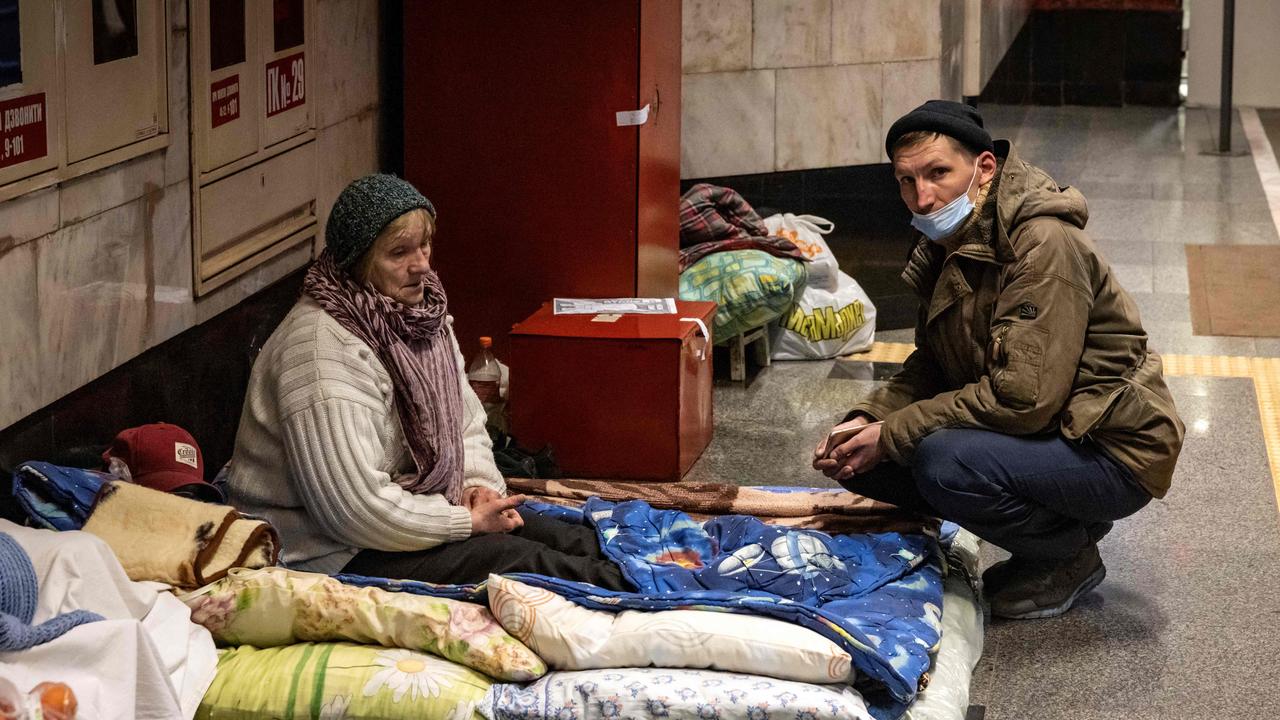
The Telegraph described him dressing “more like an investment fund manager on the slopes of Gstaad than the increasingly raving mad despot he has become”.
A Russian commentator had an equally as cutting comparison, saying Putin’s get-up was like “Billy Graham meets North Korea”.
Outspoken Russian woman Lyubov Sobol, who supports imprisoned opposition leader Alexei Navalny, said in a tweet that has been roughly translated into English: “Putin stays true to himself: he was sporting a 1.4 million rouble Loro Piana puffer jacket at Luzhniki.”
CNN global affairs analyst Bianna Golodryga quipped about the situation: “The Emperor has no (Russian made) clothes”.
The extravagant lifestyle that Putin is flaunting is a stark juxtaposition to the thousands of Russian soldiers struggling to access basic amenities as they fight in Ukraine.
Russian lieutenant general killed
Ukraine’s General Staff of the Armed Forces confirmed in a Facebook post Saturday that the commander of the 8th Combined Arms Army of the Southern Military District of the Russian Armed Forces had died, BBC reported.
Lieutenant General Andrei Mordvichev was reportedly killed during an artillery strike in the Ukrainian town of Chernobayevka.
“Vladimir Putin, wearing an Italian designer coat modestly priced at £10,500 and a white roll neck sweater costing £3,200, was drumming up support for his ‘special military operation’ in Ukraine.â€
— Bianna Golodryga (@biannagolodryga) March 18, 2022
The Emperor has no (Russian made) clothes. https://t.co/YCbfkI0gBZ
Путин не изменÑет Ñебе — в Лужниках он поÑвилÑÑ Ð²Â Ð¿ÑƒÑ…Ð¾Ð²Ð¸ÐºÐµ Loro Piana за 1,4 миллиона рублей
— Соболь Любовь (@SobolLubov) March 18, 2022
Ðеплохо было бы начать роÑÑийÑкое импортозамещение ÑÂ Ð¸Ð¼Ð¿Ð¾Ñ€Ñ‚Ð¾Ð·Ð°Ð¼ÐµÑ‰ÐµÐ½Ð¸Ñ Ð³Ð°Ñ€Ð´ÐµÑ€Ð¾Ð±Ð° Путина. pic.twitter.com/q1dIwRxRZw
Russian troops formed up along a 64 kilometre supply train as part of their invasion into Ukraine but parts of the convoy reportedly struggled to access fuel in freezing temperatures and food was scarce.
Russian troops have also broken into grocery stores and taken over farms in search of food as the invasion has progressed, sparking concerns of looting further down the track as well.
Earlier on Saturday, US think tank the Institute of the Study of War concluded that “Russian forces face growing morale and supply problems”.
Three weeks ago, stories started emerging of some Russian units “surrendering without a fight” because they were running out of food and fuel.
CNN also wrote about how Russia had reached out to China asking for supply pre-packaged, non-perishable military food known as “meal, ready-to-eat,” otherwise known as MREs, to help with the war effort.
There were also reports that Russian troops were supplied MRE packs that had expired years ago, with one pack not fit to eat since 2015 – seven years past its expiry date.
And it’s not just Russian troops, either.
Everyday Russians have endured a collapsing economy amid sanctions from the west, making it more difficult to afford the bare necessities – let alone a designer brand jacket.
Russian businesses are unable to get paid or pay their staff as a result because of the nation being booted out of the SWIFT system. Businesses also can’t pay for imported goods or machinery or any input they need for business.
The central bank has increased the interest rate to 20 per cent, which is a doubling of previous rates.
Now the cost of debt and cost of essential items like food and fuel has skyrocketed.
There are warnings Russia could default on paying $210 billion worth of foreign debt, which would have “astronomical” consequences for the country.
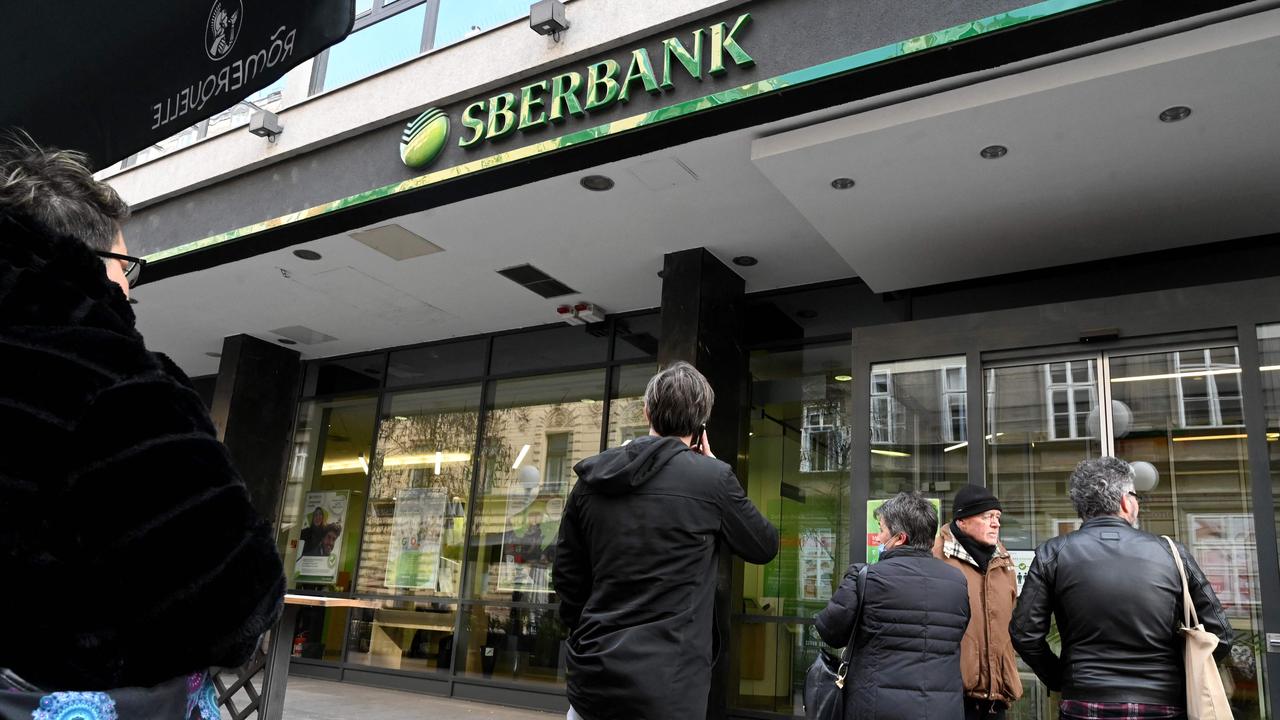

Old couple drive away armed invaders with swear words
An elderly Ukrainian couple have been hailed as heroes after forcing four heavily armed Russian invaders to leave them alone by profusely swearing at them.
At one point Russian troops levelled a gun at the married woman and another time, out of frustration, the soldiers fired their guns into the air to scare the husband and wife duo.
But in the end the Ukrainian pair walked the soldiers out of their courtyard and slammed the gate behind them.
Volodymyr Doshkar recounted the terrifying ordeal to Radio Free Europe/Radio Liberty, which was also captured on CCTV footage.
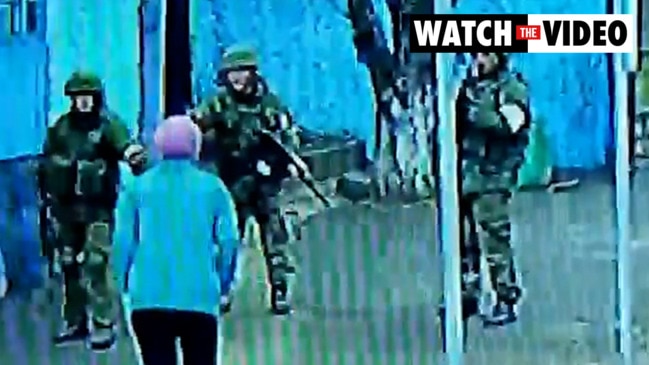
“I saw three Russians breaking into my front yard. The fourth one stayed on the street,” he said in a video which has been translated.
Bravely, he and his wife came out to meet the soldiers, who were demanding they raise their hands in surrender and lie on the ground — which they refused to do.
“I can’t repeat what we said to them — Russian curse words,” Mr Doshkar said.
“We told them to get the hell out. They started shooting in the air to scare us. Then they pointed a gun at my wife and told her to give them her phone.”
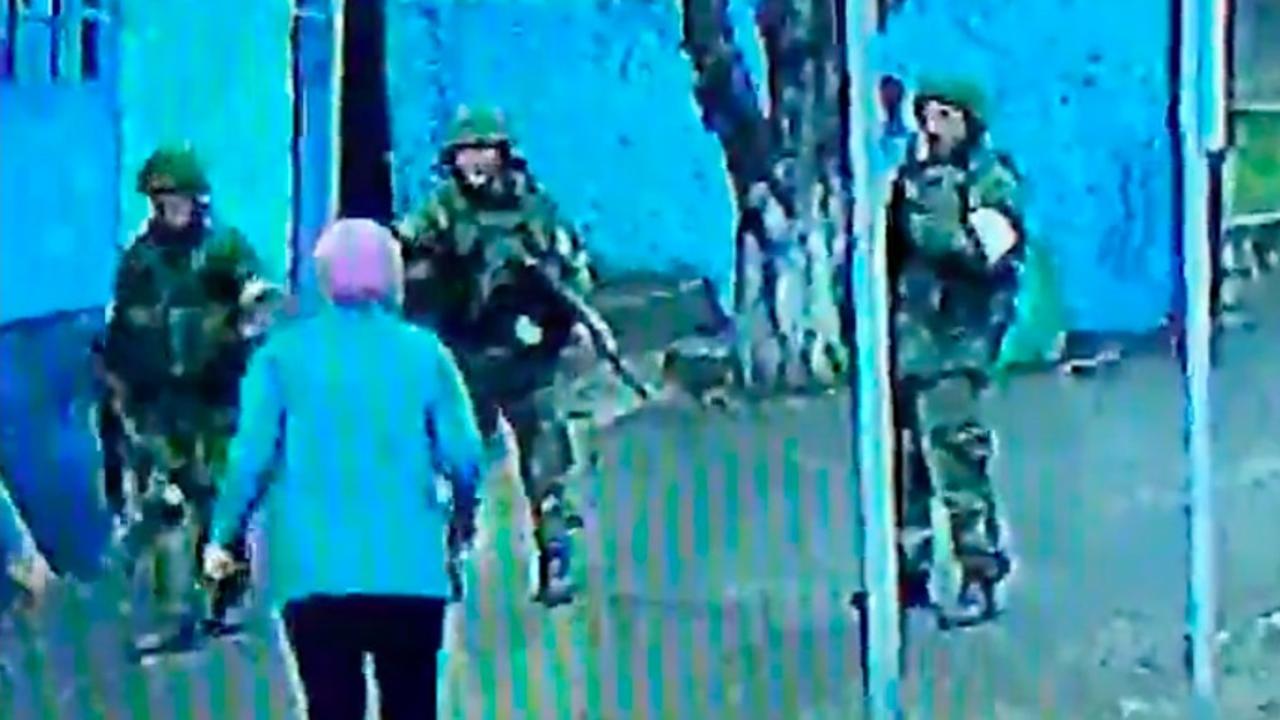
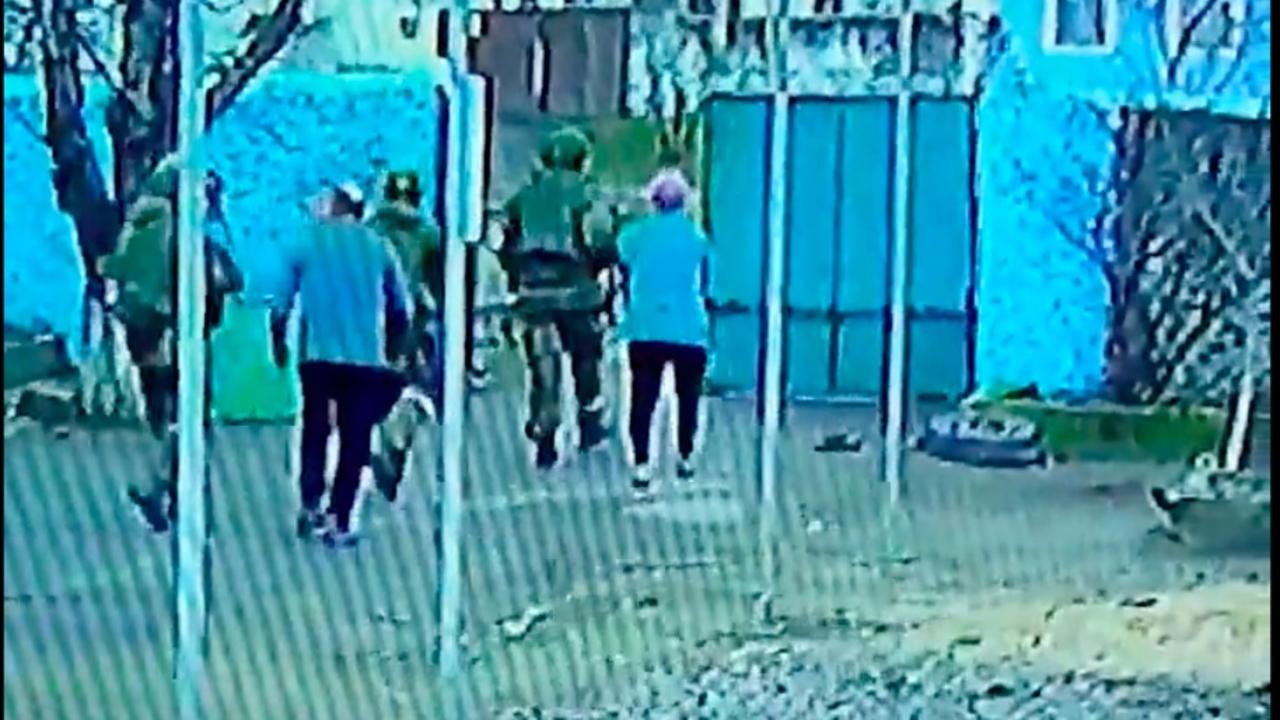
Instead of backing down, his defiant wife replied “Over my dead body”.
Luckily the Russians didn’t take her words literally. While two of the soldiers were “boneheads”, one was “reasonable”, according to Mr Doshkar, and the Ukrainian couple managed to persuade them to leave.
“We gradually pushed them away from our courtyard. They went back down the street.”
It is unclear whereabouts in Ukraine this occurred.
- With wires



